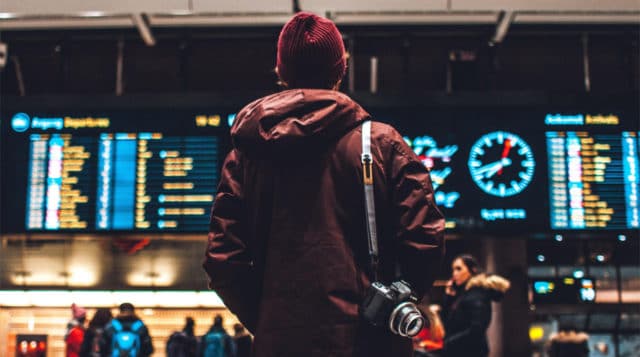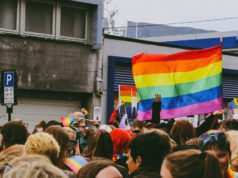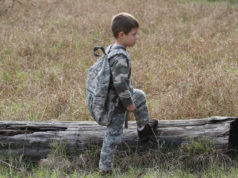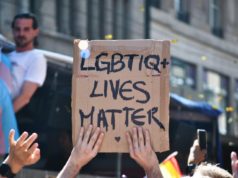
Being different in the eyes of society can be a challenge to your security and the right to enjoy your liberty. Such is the challenge that members of the LGBTQ society face when trying to live a normal life in the community like everyone else. Suddenly public places, facilities, and even hotels turn “private” and slam doors in their faces.
Members of the LGBTQ society must exercise caution, especially when traveling outside familiar territory to avoid putting their safety at risk. Here are some tips to help you stay safe while traveling as an LGBTQ member.
Know destination laws and customs before travel
When planning to travel as a member of the LGBTQ society, always ensure you understand local laws and customs at the destination to avoid walking into a hostile environment.
This does not apply to holiday travel alone, but even to those joining college. Many countries and colleges have restrictive laws against members of the LGBTQ society and it pays to check relevant associations and sites for an LGBT-friendly college or accommodation.
You may also check with your country’s foreign office for any travel advisories that may include information on LGBTQ tolerance. However, seeking out local gay associations at the destination can be a greater help in helping you fit in.
Come out only if safe
Whether in college, on a business trip or vacation travel, there will come a time you have to account for the significant other.
Maria Rodrigues, who works as a political science writer for twiftnews, shares a useful tip with us. When traveling on vacation, you are bound to meet with people who are not members of the LGBTQ society and this question might come up innocently. You may also face a situation where people you are having a good time with may decide to hook you up with the opposite gender.
Naturally, simply saying no will beg the question of why and may force you to come out. If you must come out in unfamiliar surroundings, do so on your terms and unapologetically so with confidence. They wanted to know, you have told them, and how they react is their burden.
Be bold overcome your fear
Most times, our biggest enemy is fear – fear of the unknown that binds in shackles of self-isolation. You are who you are and nothing is going to change that fact, so hold your head high and enjoy your liberty. If you step out boldly to live your life freely and assertively, the rest of the world is going to respect you and your rights.
Seek advice and assistance from gay-friendly travel companies for suggestions on friendly destinations, accommodations, LGBTQ communities, and areas of interest. Remember, how you conduct yourself determines how others will react towards you, so kill the fear and enjoy life.
Travel documents
Transgender people are the most affected by travel-related issues. The documented gender on your passport may not match your physical presentation. Explaining this to immigration officials at a destination country that does not have an overt gay presence can be a challenge.
If you are likely to face this sticky situation, try to get as much information as possible about legal implications at the destination before boarding the plane.
Find out if some additional documentation from the foreign office can be of help and let someone back home know your itinerary at all times. To avoid embarrassing and uncomfortable physical checks at airports, you may consider going for the TSA PreCheck before travel.
Accommodation arrangements
Take care to understand the cultural tolerance for the lesbian, gay, bisexual, transgender, and queer as you make accommodation arrangements.
To avoid hostile reception or even violent ejection, try to be discreet about your status to have a comfortable stay. This might include an overt display of affection in public or even the arrival at a hotel reception desk with one suitcase for the both of you.
Pack each their travel luggage and portray the appearance of plain friends traveling together and wishing to share accommodation costs. Be careful to book a room with two beds to avoid raising suspicion. However, if possible, check with gay associations for the availability of LGBTQ-friendly hotels or private villas to enjoy your stay.
Find local LGBTQ communities
It helps to be among like-minded people, especially when you far from home in a foreign country. In your pre-travel research, try to find out the existence of gay communities at the destination and connect with them before travel.
Such arrangements assure you of a friendly person meeting you at the airport and helping you move around with a sense of security and belonging.
The chances are that this information could be available at the local LGBTQ society associations in your home country. You could also search over the social media platforms for members of the society and reach out to them to establish a connection. These locals will accept you as their own and prepare for your stay while in their country.
Know and claim your rights
You have rights under the law that you must claim for safety and dignity. However, those rights can only mean anything if you know and claim them any time you face a challenge.
When traveling, start by finding out what the law says about prosthetics and other personal accessories to adequately explain at airport screening points.
Airport checks include advanced imaging technology (AIT) and physical pat-downs. You may prefer one to the other according to your preferences with protection under the law. Transgender opting for a pat-down, are entitled to choose an officer of their preferred gender despite the difference in documentation
Conclusion
You may drop your guard and attract hostile attention, or a situation may just arise where the truth about your status has to come out. In the face of hostility or discomfort, try not to escalate the situation by walking away. If your safety is at risk, raise the alarm for help or call someone about the situation. Whatever you do, personal safety is a priority.







